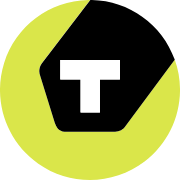The Register meldt in dit artikel dat de deuren van de CeBIT beurs in Duitsland gesloten zullen blijven voor internetjournalisten, inclusief Dr. Thomas Pabst en journalisten van Reuters. Alleen diegene die als journalist werken voor een magazine kunnen vrij toegang krijgen tot de beurs die over een paar dagen van start zal gaan. Hieronder een gedeelte uit het bericht:
Online journalists will be banned from next week's CeBIT trade show in Hannover, Germany.According to the powers that be at the Messe, writing for the Internet is no proof of being a reporter.
So if it ain't in print, it ain't worth the paper it's not written on.
So far as British Web journalists are concerned, only those bearing a membership card from the National Union of Journalists (NUJ) will be allowed past the front barricades.
Their print counterparts will, however, be allowed to waltz in without the NUJ card -- which costs £228 per year -- by merely flashing the magazine they work for.
CeBIT's ruling affects online journalists from all over the world, including Dr. Thomas Pabst, CEO of Tom's Hardware Guide, the world's biggest hardware review site, with 1.1 million readers per month.
"It's ridiculous," he said, "that CeBIT is banning all online publications, just to stop small amateur fan sites from getting into the show for free."
It doesn't matter how many CeBITs you attended in the past: if you're an online journalist like The Register's Mike Magee, a 12-show veteran, you're still banned. Unless you wave your union card, of course.
And it doesn't matter how famous or well-established your title is: a Reuters journalist would not be let into the show without an approved press pass, Gaby Doerries, a CeBIT representative, said.
Getting daily by-lines for news stories on the Web is no proof of being a journalist, she told The Register. "Everyone in the world is able to make an online magazine, so it's not proof. Anyone can write down that they are an editor-in-chief."
This discrimination against online journalists means that CeBIT organisers are deciding which press can and cannot attend vendors' stands and presentations.
With exhibitors' fees running into thousands of pounds for each, they are obviously banking on as much press coverage as possible -- both print and online.

